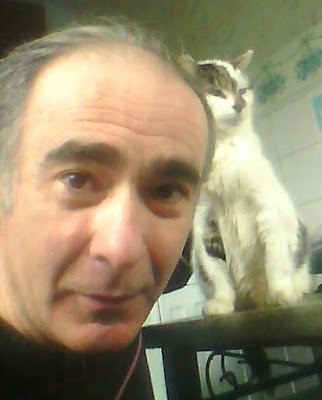I agree with this Animal Aid statement 100%. The soulless turkey slaughterers said the killing was "going very smoothly". Spare a thought for these poor creatures tonight - the turkeys, of course.
Animal Aid statement on Bernard Matthews bird flu outbreakWith government-appointed killing gangs preparing to destroy as many as 160,000 birds at a Bernard Matthews Suffolk turkey farm, it is time for the intensive poultry industry to acknowledge that its own ruthless animal production and slaughtering systems are the root cause of the deadly new strains of bird flu.
The global poultry industry has so far succeeded in diverting blame for the Avian Influenza outbreaks onto wild migratory birds. But with the migratory season over, industry apologists are devoid of excuses.
In its natural state, the influenza virus has existed for millions of years as a harmless, intestinal infection of aquatic birds such as ducks. In poultry, bird flu has gone from a rare disease that occurs once a year to a far more lethal condition that is striking more and more frequently. The deadly H5N1 strain emerged in 1997 in Hong Kong. Since then, lethal outbreaks have hit the Far East, China, North America and Europe, including Norfolk and Fife. Millions of birds have been brutally destroyed and more than 100 people have died, mostly in Asia.
Broiler sheds are perfect breeding grounds for the new, deadly viral strains and there are any number of ways that they can spread across countries and continents - not least through transportation of chicks and poults, poultry products, feed and equipment.
Countries that have not yet developed a large-scale intensive poultry industry have been largely spared. Despite poultry sheds being nominally sealed off from the outside world, diseased material can easily enter them. An expert in the field, Dr Mohammad Yousaf*, has indicated that H5N1 and other such strains can find their way in through faecal traces or moisture in the air - or through the medium of feed, water, supplies, cages, clothes, delivery vehicles, mammals and even insects.
That a Bernard Matthews production unit should be hit by bird flu comes as no surprise to those who have monitored the company’s activities over the years. Undercover investigations in 2002, 2005 and 2006 produced evidence of crowded, dirty conditions with severely injured, diseased and dead birds.
In September last year, two of the company’s workers at Beck Farm, Haveringland were convicted of battering turkeys with a broom handle, used like a baseball bat. The solicitor defending the men described the conditions in the unit as "appalling" and said: "You can see why people move to an organic, more open type of farming."
Intensive farms, like those that Bernard Matthews run, are little more than disease factories. Overcrowded, filthy conditions, and stressed animals are a recipe for an outbreak.
The first priority of the meat industry and its government allies has been to insist that poultry products are safe to eat and that the public should continue to buy and consume them. Cooked chicken and turkey might be purged of viruses but how safe are the bodies of dead birds - fresh from supermarket chillers - that reside in millions of fridges around the country?
The birds in that Holton shed, whose fate under ‘normal’ production regimes would be appalling, are set to endure even greater suffering. Government ministers indicated in recent months that they would be prepared to allow mass asphyxiation of birds under just these circumstances.
Animal Aid is calling for a boycott of all chicken products as a means of waking up the government, the industry and the consumer to the vile and deadly nature of intensive animal production in the UK.
Notes to the Editor
For full background and interviews, contact Andrew Tyler on 01732 364546 (out of hours 07918 083774)
ISDN line available for broadcast-quality interviews.
Reference:
* Avian influenza outbreak hits the industry again, Dr Mohammad Yousaf, University of Agriculture, Faisalabad, Pakistan, World Poultry, Vol 20 No 3 2004.* Avian influenza outbreak hits the industry again, Dr Mohammad Yousaf, University of Agriculture, Faisalabad, Pakistan, World Poultry, Vol 20 No 3 2004.
© Copyright Animal Aid 2007
Source link:
http://www.animalaid.org.uk/h/n/NEWS/pr_factory/ALL/1504//










